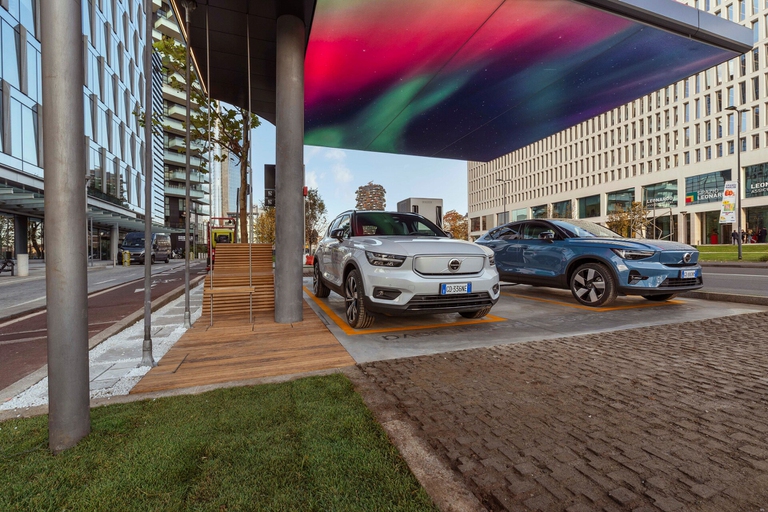https://www.lifegate.it/volvo-rinuncia-produrre-solo-auto-elettriche-entro-2030
- |
U-turn by Volvo.No more just full electric by 2030.The Swedish car manufacturer has decided to review its objectives to take into account a demand that is not meeting initial expectations and is proving inconsistent to support the move to a 100 per cent battery-powered range.It has declared the CEO and president of the company Jim Rowan at the beginning of September.The goal now is to achieve it over the next five years a sales mix made up for the 90-100 percent from electrified cars (electric and plug-in hybrids) and for the remaining part from models mild hybrid, cars with an internal combustion engine also equipped with a small electric motor.

The context:the reduction in demand for electricity in Italy and around the world
To date, the full electric car market is thriving a moment of slowdown in demand which sees many car manufacturers, Volkswagen, Ford, Renault and the Stellantis group implement cuts to staff following a drop in sales.The global giant in the electricity sector already months ago Tesla he had announced, as reported by the specialized magazine Electrek, redundancies for 10 percent of the workforce.In Italy, to date according to estimates by AlixPartners, they take risks 7 billion in value loss to 2030 e 40 thousand redundancies totals due to the transition from traditional to electric cars.A study of Promoter study centre highlights how the problem of the electricity market, in Italy and beyond, can be traced back to one side to the increase in the price level general, on the other to the lack of incentives despite promises from governments.
Volvo:the transition will not be linear, we need to be pragmatic and flexible
In this context, Volvo has revised its electric strategy but he hasn't changed his long-term goals to become a manufacturer of fully electric cars and to achieve zero emissions net greenhouse gases for the 2040.Next year the company expects the percentage of electrified products to be between 50 and 60 percent.“We are convinced that our future is electric,” he reiterated Jim Rowan, CEO of Volvo Cars.
“However, it is clear that the transition to electrification will not be linear and that customers and markets are moving at different speeds.We are pragmatic and flexible, while maintaining a leading position in the electricity and sustainability sectors."A "rethink" that does not affect, at least for now, the marketing of new models already planned, such as the EX 90, a 7-seater electric SUV that has just made its debut with an electric range of up to 600 kilometers and prices starting from 85 thousand 250 euros.
Volvo was among the first companies to aim for full electric
Despite the decision to slow down on electrics, Volvo remains one of the automotive brands most committed to the electric revolution.In 2021, the Swedish brand was one of the first to side in favor of electric, in the name of his green choice, which he has continued until today:In the second quarter of 2024 the share of fully electric cars produced by Volvo Cars has attested to 26 percent, the highest value among premium car brands.Just as high was the share of plug-in hybrids.
In short, that the electric transition of the car, despite the undeniable environmental advantages, remains a complex challenge, as we have reiterated on many occasions, it remains to be seen whether Volvo, as well as almost all brands, will keep the commitments made also in view of the 2035, or if there will be more changes of course.
